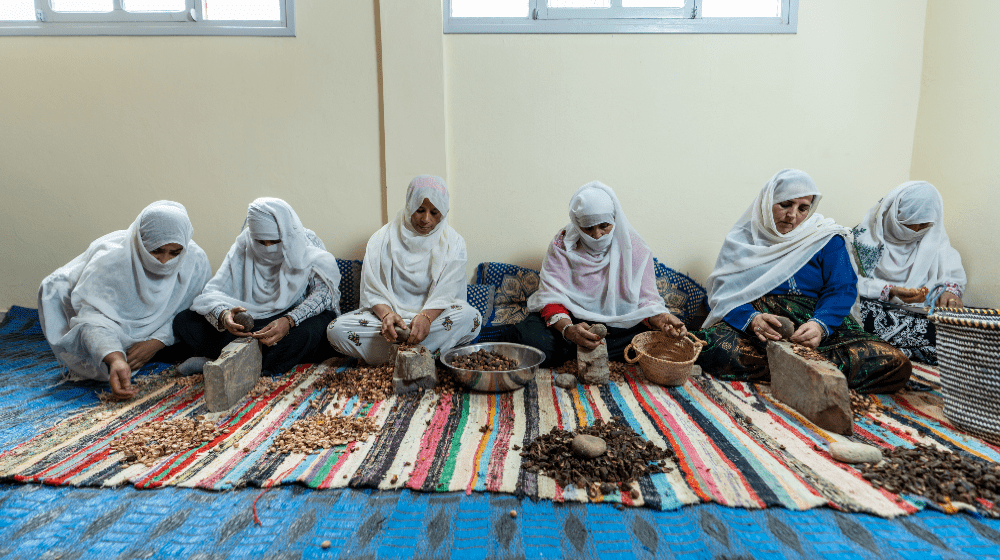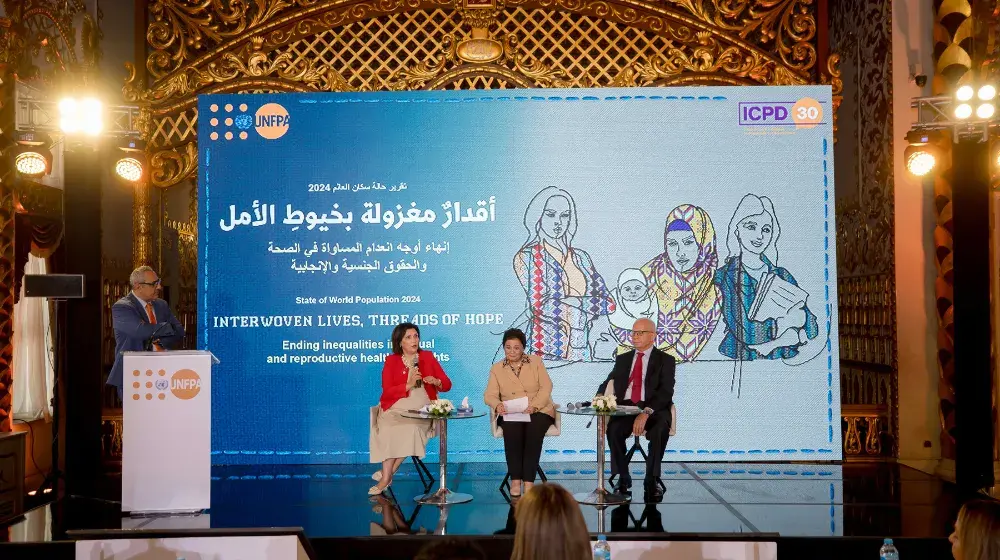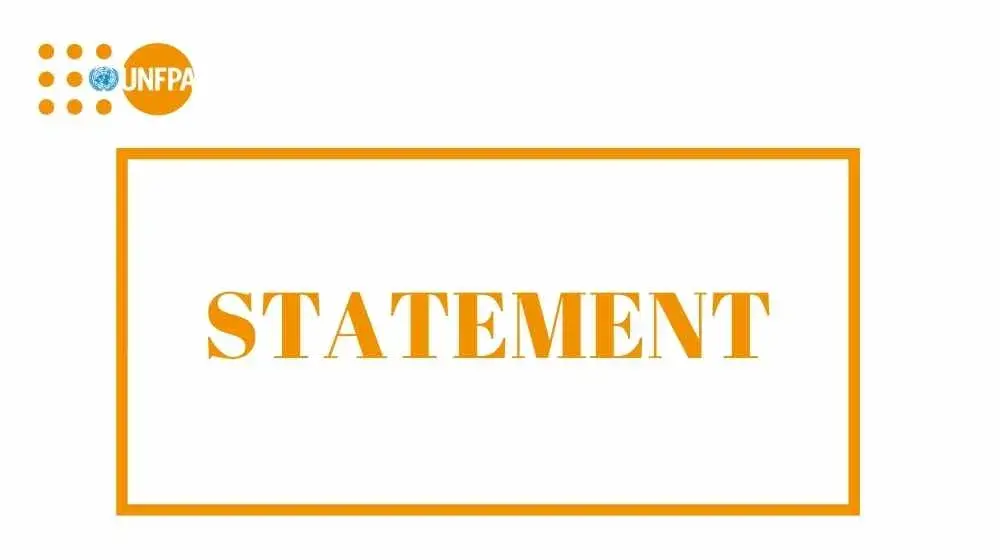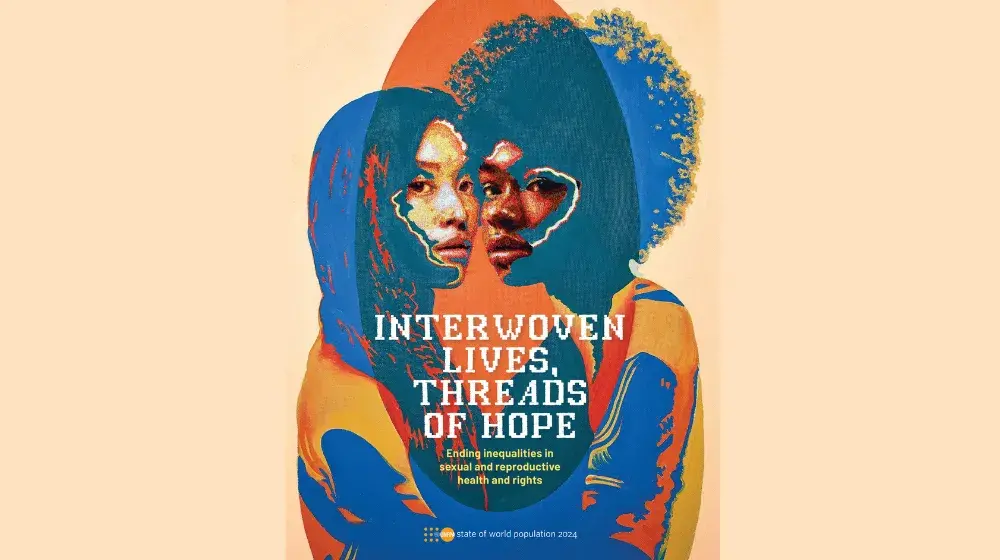Like the hardy Argan tree, Fadma’s roots run deep in the arid lands of Southern Morocco.
Both rugged and resilient, the fates of Fadma and the forest are inextricably intertwined.
Fadma’s community, like many local populations in Southern Morocco, have built their livelihoods and cultural identities around the Argan forests for generations.
Argan oil, known locally as ‘liquid gold,’ provides a living for millions through export. The oil is also used locally for cooking, and has been used in folk medicine for centuries. The fruits, leaves and seed pulp from Argan trees are used to feed the community’s livestock.
Argan trees can withstand drought and severe heat, yet it's not enough to survive the rising temperatures and swelling sands of the nearby Sahara desert, driven by climate change.
The shrinking forests threaten to push the millions into poverty, forcing women and girls to give up on their education in search of work, heightening the risk of violence, child marriage, unintended pregnancies, and locking them into a downward spiral of poverty for generations.
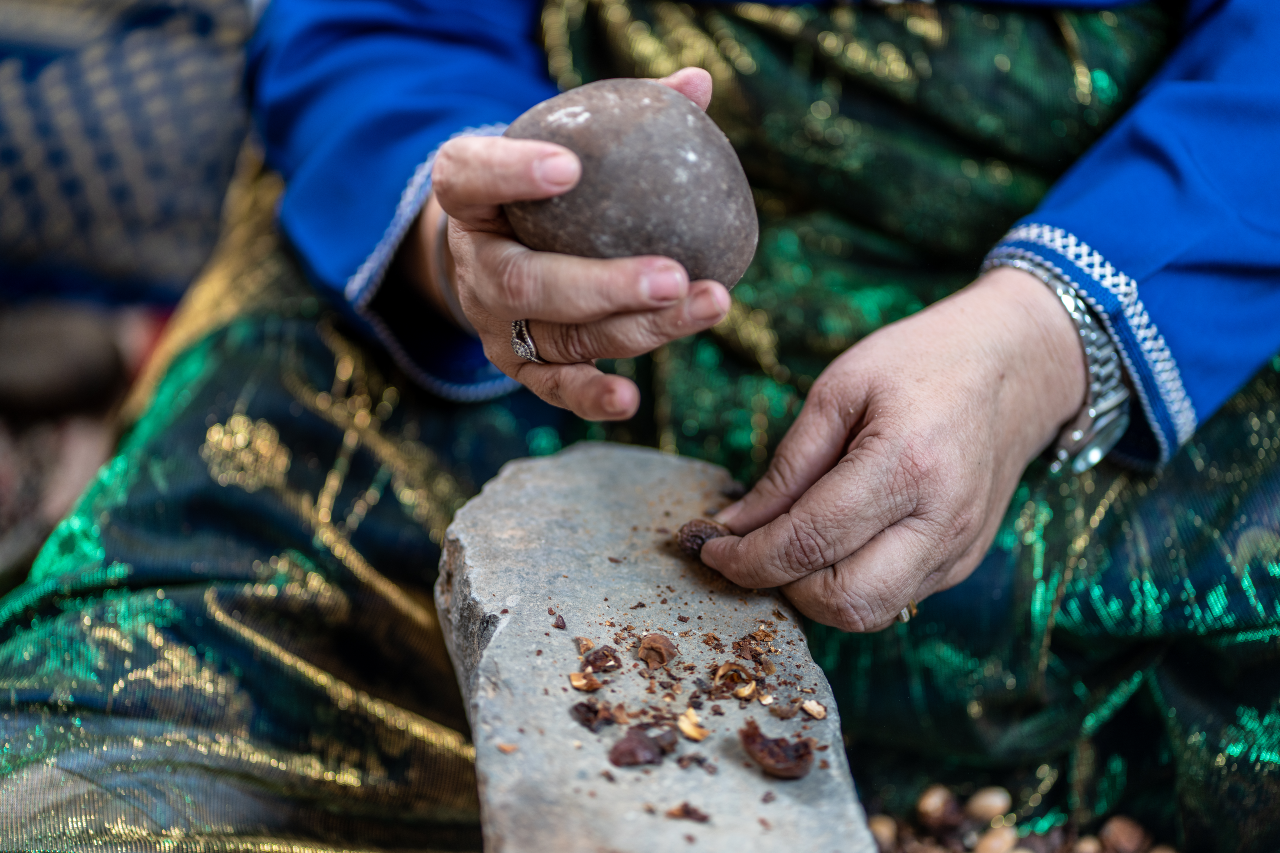
Roots of change
Yet a UNFPA-supported cooperative is throwing a lifeline to Fadma’s community and many others that depend on the Argan forests, by employing women in the cultivation of the trees.
‘I didn't have a regular income, but now I get paid monthly thanks to the cooperative,” says Fadma, who is supported by the Union of Argan Oil Women Cooperatives in Agadir [UCFA].
‘The money helps us share the household expenses and puts our children through school.’
Local cooperatives like Fadma’s employ tens of thousands of women to harvest Argan seeds and lead the extraction of Argan oil, while conserving cultural traditions and practices.
“Women play an irreplaceable role in preserving the Argan forests. They help with sustainable development whilst receiving a valuable source of income,’ says Jamila Idbourrous, Director of the UCFA.
In recognition of the Argan heritage, the United Nations proclaimed 10 May as the International Day of Argania, which was celebrated for the first time in Morocco this year.
During the festivities, five generations of rural women and girls met with leaders, scholars and executives to find new ways of adapting to climate change, including working with, and learning from, traditional practices and other countries in the global south.
Growing together
Fadma’s cooperative is a member of We-Men engaged for change, Morocco’s first-ever coalition for social, climate and gender justice that was launched in July 2022.
The coalition aims to aid women and girls in navigating the challenges they face, and to empower them to fulfil their potential as problem-solving pioneers.
As the effects of climate change impinge on women’s and girls’ access to health care - particularly sexual and reproductive health services - the coalition is working to provide mobile maternal care and family planning services and counselling in rural areas.
It works with the communities to raise awareness on how the effects of climate change hit women and girls harder than men, especially if their rights are not protected and respected.
Gender-based violence can spike in climate-driven crises, so the coalition works with communities to stop violence before it starts and to ensure survivors receive quality care.
‘The initiative is focused squarely on women and girls that are at risk of being left-behind, especially girls that are not studying or working and living in rural areas,’ says Abdel-Ilah Yaakoubd, Assistant Representative for UNFPA in Morocco.
‘It puts a special emphasis on the big issues that affect them - from social protection to jobs and climate change - and it aims to improve their skills and opportunities in life. Overall, these actions help to make women, girls, their communities and the forests they depend on, even more resilient, while conserving and learning from their rich heritage.’ he added.
July 11 - World Population Day - marked the coalition’s first anniversary, and with UNFPA support, the coalition has ambitious plans for the future, including empowering women and girls to act as leaders in their communities, and to join international climate negotiations.
Fadma, and many more women and girls like her, are well placed for a flourishing future.

